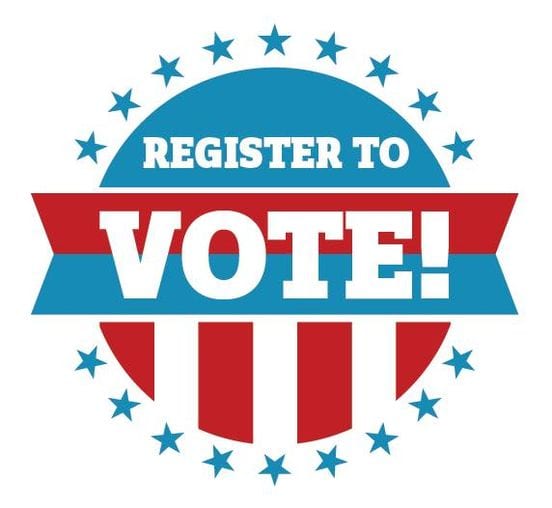
Only 60 percent of Shelby County residents are registered to vote. Even lower is the number of registered voters who historically make it to the polls.
A group of local legislators and community leaders are attempting to boost turnout in time for the Nov. 3 general election. Their efforts come amid COVID-19 adding an extra threat to their mission.
And, the effort comes as the nation celebrated National Register to Vote Day Tuesday (Sept. 22).
Monday (Sept. 21), the group met to discuss ways to tackle voting issues in Shelby County during the “Coalition Get Out the Vote 901” summit.
The event was organized by TaJuan Stout-Mitchell, a former member of the Memphis City Council, who said the purpose of the summit was to “encourage collaboration and unify forces against any effort to suppress voting.
“We are all working so hard, but we work in silos,” Stout-Mitchell said. “There should be a time every now and then where we put aside our differences and come together under one umbrella and work for one common goal and that’s to drive our vote.”
Under the “umbrella” of summit guests were Shelby County Mayor Lee Harris, Shelby County Trustee Regina Morrison Newman, Tennessee state Rep. Joe Towns (D-Memphis) and Shelby County Commissioners Tami Sawyer and Van Turner Jr.
Also, participating were community leaders Gale Jones Carson, Michael Harris, the Rev. Dr. Earle J. Fisher, Dr. Rosalyn Nichols, Steve Mulroy, Cherisse Scott and Keith Williams.
Tennessee state Sen. Raumesh Akbari (D-Memphis) moderated the event.
“The politics of division and fear are used against us to distract us from corruption and a failure to provide the healthcare and economic opportunity all our families deserve,” Akbari said. “By joining together, Black, White and Brown, we will vote in record numbers and raise our voices in the street to swear in a government, of, by and for the people.”
Panelists reiterated the long road ahead to drive engagement before the next general election. Pointing to threats of voter suppression, leaders said COVID-19 only compounds the problem.
“This is a very important year. It’s a year we all want to forget,” Mayor Harris said. “It’s a year filled with challenges, but it’s also a year where we have to make sure our voices are heard and our votes are counted.”
Harris also mentioned that his team is working closely with the Shelby County Election Commission to ensure there are enough resources for absentee ballots.
Nearly 17,000 Shelby County residents voted by an absentee ballot for the August 6 primary. In November, the Election Commission is anticipating the number of requests for absentees to be as high as 100,000 due to concerns surrounding COVID-19.
A surge of requests came after a Tennessee judge allowed all eligible voters to cast absentee ballots because of the pandemic. The ruling was in place during the August 6 primary election, but was overturned by the state Supreme Court for the November election.
According to lawyer and former Shelby County Commissioner Mulroy, who helped file the initial lawsuit requesting absentee ballot for all citizens, people still can vote by mail if they believe they or someone in their care faces a higher risk of COVID-19 as a result of underlying health conditions.
“If you do in fact have underlying conditions, my advice would be to explore absentee voting,” Mulroy advised.
He noted that he and his team are currently litigating against the state to seek an order that will allow anyone living with a person with an underlying condition to be able to vote by mail.
Mulroy also encouraged eligible voters to consider early voting if they have to go to the polls, to avoid crowds and long lines.
Towns also noted an additional lawsuit that he and other Democratic state representatives filed to provide an additional layer of accountability for electronic voting machines.
“It’s one thing for the votes to be cast, it’s another thing for the votes to be received and counted,” said Towns. “If you know the history of politics in this town you know that people have been stealing votes for a while, and votes that are stolen and manipulated are typically minority votes.”
Shelby County Election Commission Administrator Linda Phillips, who did not attend the summit, said leaders also should consider that low voter turnout in Shelby County is not always a result of engagement or concerns of voter suppression.
“One of the problems with calculating voter turnout is that it is dependent on the number of registered voters,” she told The New Tri-State Defender after the summit.
“What we have found in Shelby County is that when we do a precinct-wide mailing to notify voters of a change in polling place, for example, about 20 percent of them are returned as undeliverable. I suspect that many of them do not still live in Shelby County.”
Local voting advocacy organizers said they’re doing the work to not only encourage citizens to vote but also provide them with resources to get to the polls.
Organizations such as the Shelby County Democratic Party and the NAACP Memphis Branch plan to offer free rides to the polls for those who may not have transportation.
“We want people to know, if you want to vote in Shelby County, just pick up the phone and we can get you a ride,” Shelby County Democratic Party Chairman Michael Harris said.
Another issue that has arisen due to COVID-19 is the possible decrease in poll workers. Harris said most poll workers are usually older and fear working on Election Day due to health concerns. As a result, the county will host a poll worker job fair Oct. 6.
While the summit’s main focus was voter turnout and engagement, the U.S. Census was also a highlight, as organizers pointed to the ways they are ensuring their voter initiatives also double as Census informational sessions and sign-ups.
The last day to register to vote in the November election is Oct. 5. Early voting begins October 14.